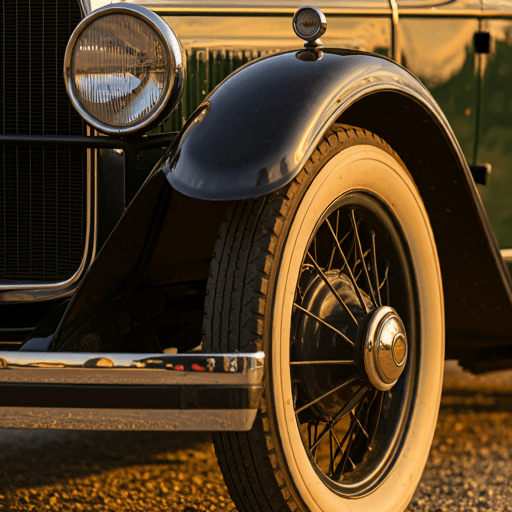what is the purpose of fenders? Fenders serve a crucial purpose in protecting both vehicles and structures from damage.
Specifically, they are designed to absorb impacts, which significantly reduces the risk of scratches, dents, or more severe harm to cars, boats, and buildings during collisions or rough weather conditions.

For instance, on vehicles, fenders shield the wheels and brakes from dirt and debris. Meanwhile, on boats, they prevent damage to the hull when docking. Overall, fenders not only enhance safety but also prolong the lifespan of vehicles and structures by acting as a buffer against potential hazards.
A History of Fenders (Mudguards to Modern Marvels)

In the early days of automobiles, fenders were primarily made of metal, often crafted from sheet metal or cast iron. These early fenders were utilitarian in design, focusing on functionality rather than aesthetics. They were primarily used to protect the car’s body from road debris and to keep mud and water from splashing onto passengers.

As automobile design evolved, so too did the appearance of fenders. During the Art Deco era, fenders became more elaborate and ornate, often featuring intricate curves and decorative elements. This trend continued into the mid-20th century, with cars like the Cadillac Eldorado and the Chrysler Imperial showcasing extravagant fender designs.

In recent decades, fenders have become more integrated into the overall design of cars. They are often seamlessly blended into the bodywork, creating a sleek and aerodynamic appearance.
Modern fenders are typically made from a variety of materials, including steel, aluminum, and plastics. They are designed to be both functional and aesthetically pleasing, providing protection while enhancing the car’s overall look.

modern cars with integrated fenders
Types of Fenders
“Fenders come in a variety of shapes, sizes, and materials, each with its own unique characteristics. Let’s explore some of the most common types.” Click here to see more.
Front Fenders
- Purpose: Protect the front of your car from road debris, rocks, and other hazards.
- Appearance: Often have a more curved shape to match the contours of the front wheel well.

Rear Fenders
- Purpose: Guard the rear of your car from damage caused by flying objects or parking accidents.
- Appearance: May have a more angular shape to accommodate the rear taillights and other features.

Plastic Fenders
- Benefits: Lightweight, corrosion-resistant, and often less expensive than metal fenders.
- Drawbacks: Can be more prone to scratches and dents.
Metal Fenders
- Benefits: Durable, strong, and can withstand more severe impacts.
- Drawbacks: Heavier and more susceptible to rust if not properly maintained.

Custom Fenders
- Options: Available in a wide range of styles and materials to match your personal preferences.
- Cost: Can be more expensive than standard fenders, depending on the level of customization.

Understanding the different types of fenders and purpose of fenders can help you choose the right ones for your car and ensure that it’s adequately protected from damage. In addition to their practical function, fenders also play a significant role in the overall aesthetics of a car. They can help to define the car’s silhouette and give it a distinctive appearance. Moreover, fenders can contribute to the car’s aerodynamics, helping to reduce drag and improve fuel efficiency.
How Fenders Protect Your Car
If you want to know the purpose of fenders,answer is fenders serve as a crucial line of defense for your car, protecting it from a variety of hazards on the road. Here’s a breakdown of how they work:
Impact Absorption
- Energy Dissipation: When your car collides with an object, fenders help to absorb and dissipate the energy of the impact.
- Reducing Damage: This reduces the likelihood of damage to the car’s body, such as dents, scratches, or even structural damage.

Deflection
- Redirecting Force: Fenders are designed to deflect the force of an impact away from the car’s vital components.
- Protecting Sensitive Areas: This helps to protect the engine, radiator, and other sensitive parts of your car.
Shielding from Road Debris
- Blocking Objects: Fenders act as a barrier, preventing rocks, gravel, and other debris from striking the car’s body.
- Preventing Damage: This helps to maintain the car’s appearance and prevent costly repairs.
Protecting Against Weather
- Shielding from Elements: Fenders can help to protect your car from the elements, such as rain, snow, and mud.
- Preventing Corrosion: This can help to prevent rust and corrosion, which can lead to more serious damage over time.
Benefits of Fenders
Fenders offer a variety of benefits beyond their primary function of protecting your car’s body. Here are some of the key advantages:
Enhanced Safety
- Collision Protection: Fenders can help to mitigate the severity of accidents, reducing the risk of injuries to passengers and pedestrians.
- Preventing Fire: By preventing damage to fuel lines and other critical components, fenders can help to reduce the risk of post-collision fires.
Improved Resale Value
- Attractive Appearance: Well-maintained fenders can significantly enhance a car’s overall appearance, making it more appealing to potential buyers.
- Increased Value: A car with undamaged fenders is likely to command a higher resale value compared to one with damaged or worn fenders.
Aesthetic Appeal
- Defining the Car’s Silhouette: Fenders contribute to the overall shape and style of a car, giving it a unique and distinctive look.
- Personalization: Custom fenders can be used to personalize your car and make it stand out from the crowd.
Increased Driving Confidence
- Peace of Mind: Knowing that your car is protected by durable fenders can give you peace of mind and boost your confidence on the road.
- Reduced Anxiety: Fenders can help to reduce the anxiety associated with driving in crowded or hazardous conditions.
For further details about “How to roll your fenders” in 2024 visit here
Fender Maintenance
“Regular maintenance is crucial to preserve the condition of your fenders and ensure their continued protection. Here are some valuable tips for keeping your fenders clean and well-maintained.”
Regular Cleaning
- Remove Dirt and Debris: Wash your car regularly to remove dirt, grime, and road salt that can accumulate on the fenders.
- Inspect for Damage: While cleaning, inspect the fenders for any signs of damage, such as scratches, dents, or cracks.
Check for Rust
- Look for Blisters or Flaking: Pay close attention to the edges and corners of the fenders, as these areas are more susceptible to rust.
- Address Rust Immediately: If you notice any signs of rust, have it repaired promptly to prevent it from spreading.
Repair Damage Promptly
- Prevent Further Deterioration: Small dents or scratches can be repaired to prevent them from worsening and affecting the fender’s structural integrity.
- Professional Repair: For more significant damage, it’s recommended to consult a professional mechanic.
Protect Against Corrosion
- Waxing: Apply a coat of wax to the fenders to help protect them from the elements and prevent corrosion.
- Rust Preventative: Consider using a rust preventative spray or coating to provide extra protection.
By following these maintenance tips, you can help to ensure that your fenders remain in top condition for years to come. Moreover, regular maintenance can also help to improve your car’s overall performance and fuel efficiency.
Conclusion
Fenders, not only protecting your car’s exterior but also contributing to a safe and enjoyable driving experience, play a vital role in automotive maintenance. By grasping their function, maintenance requirements, and advantages, you can make informed choices about caring for your car’s exterior.”
- Fenders are essential for protecting your car’s body from damage.
- Regular maintenance is crucial for ensuring that your fenders remain in good condition.
- Fenders can enhance your car’s safety, aesthetics, and resale value.
- By following the tips in this guide, you can keep your fenders in top shape and enjoy the many benefits they provide.
Frequently Asked Questions (FAQs)
Here are some of the most frequently asked questions about fenders:
What is the purpose of fenders?
The purpose of fenders is, they serve as a protective barrier for your car’s body, shielding it from road debris, impacts, and other hazards. They also contribute to the car’s overall aesthetics and can help to improve its aerodynamics.
How often should I inspect my fenders?
It’s recommended to inspect your fenders regularly, especially after a collision or exposure to harsh weather conditions. Look for any signs of damage, such as cracks, dents, or rust.
Can I repair a damaged fender myself?
Minor scratches or dents can often be repaired at home using a DIY kit. However, for more extensive damage, it’s best to consult a professional mechanic.
How much does it cost to replace a fender?
The cost of replacing a fender can vary depending on the make and model of your car, as well as the type of fender and the labor costs involved.
Can I customize my fenders?
Yes, you can customize your fenders to match your personal style. Popular customization options include fender flares, painting, and adding decorative elements.
What should I do if my fender is damaged in an accident?
If your fender is damaged in an accident, you should file a claim with your insurance company. They will assess the damage and determine whether repairs or replacement are necessary.

